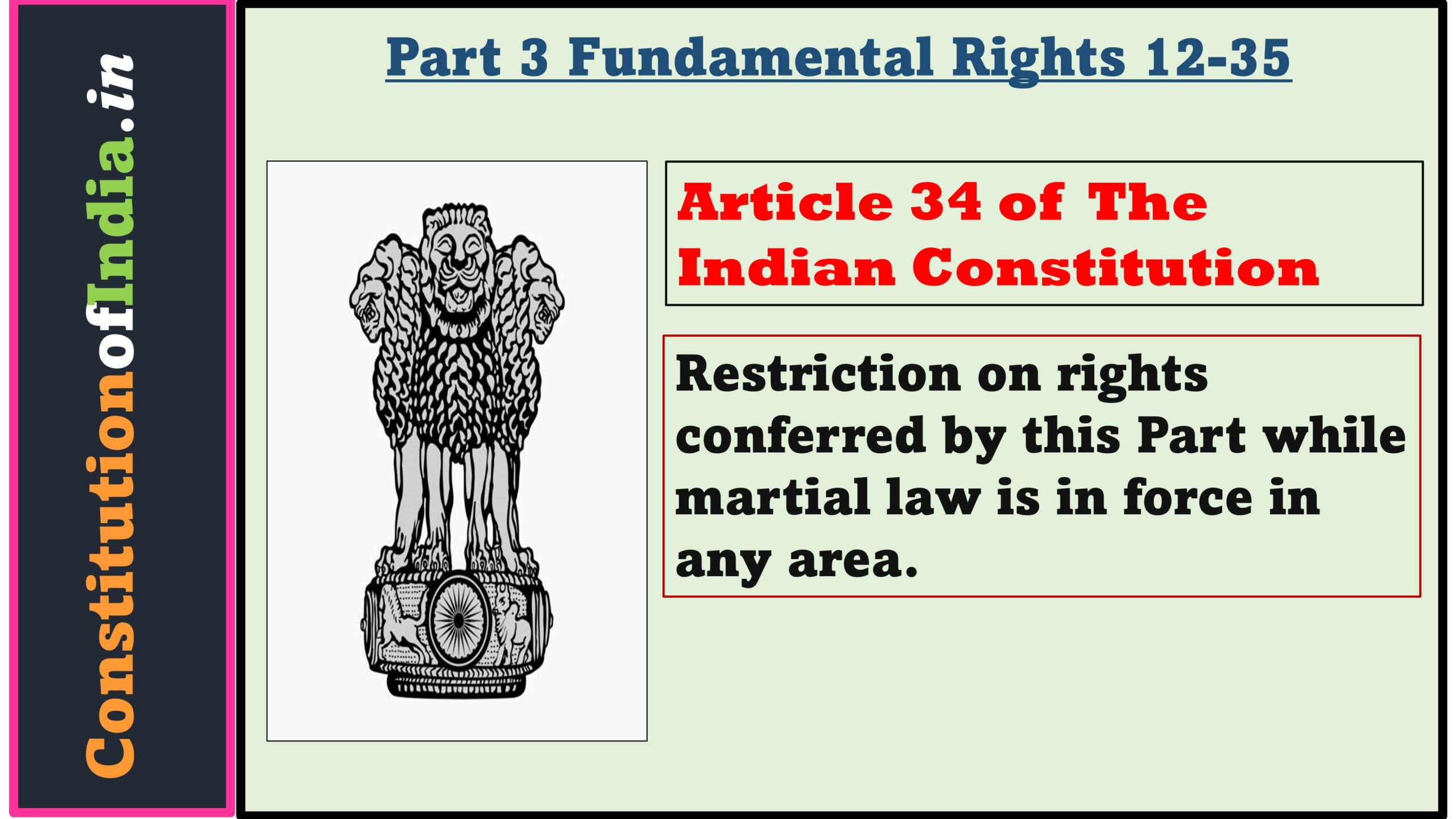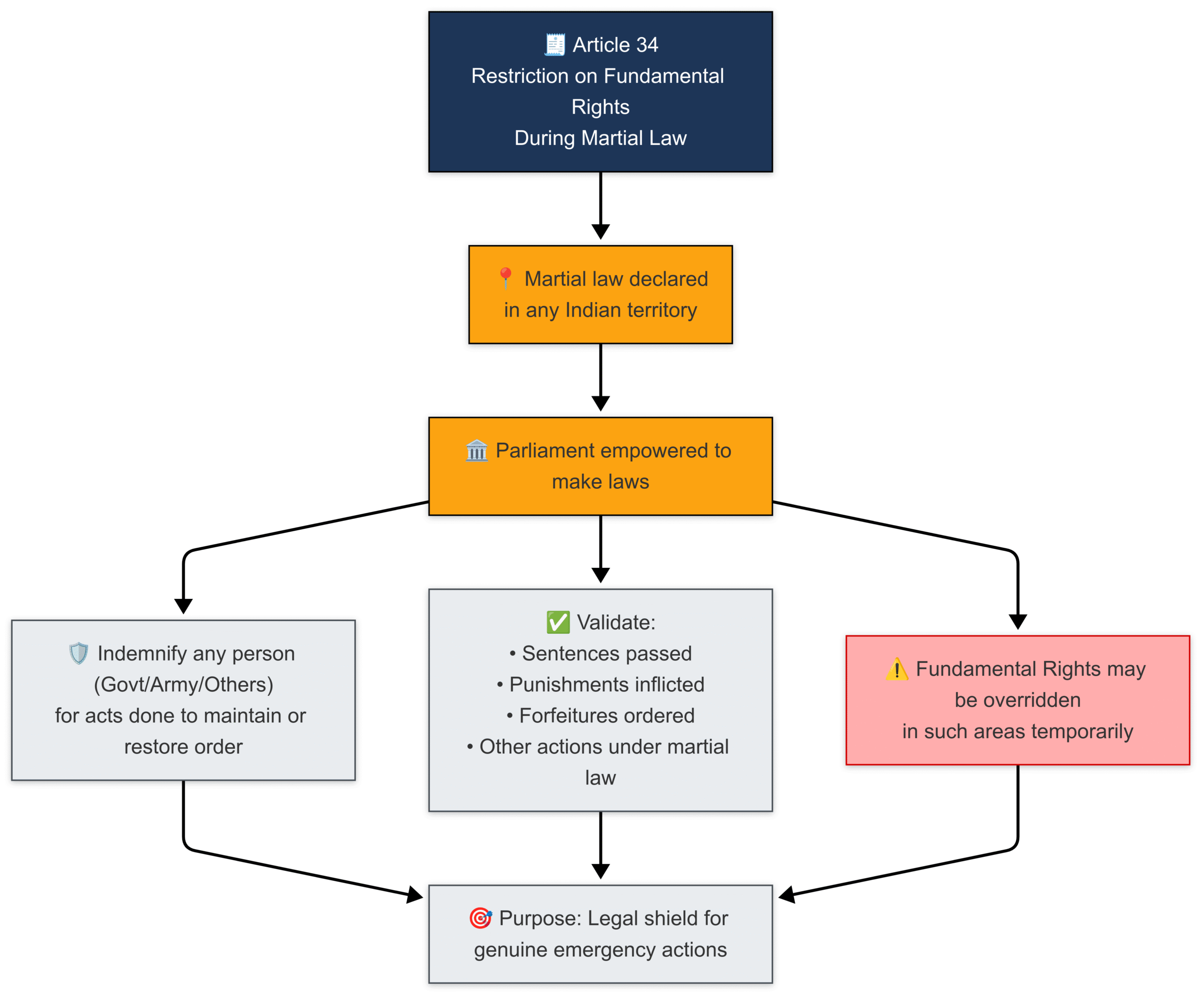Article 34 of Indian Constitution: Restriction on rights conferred by this Part while martial law is in force in any area.

Article 34 Restriction on rights conferred by this Part while martial law is in force in any area – Constitution of India
Notwithstanding anything in the foregoing provisions of this Part, Parliament may by law indemnify any person in the service of the Union or of a State or any other person in respect of any act done by him in connection with the maintenance or restoration of order in any area within the territory of India where martial law was in force or validate any sentence passed, punishment inflicted, forfeiture ordered or other act done under martial law in such area.
Article 34 of Indian constitution Explanation
🧾 Article 34 – Restriction on Fundamental Rights During Martial Law
✅ Simple Summary
- When martial law is declared in any part of India:
- Parliament can pass laws to:
- Protect (indemnify) officials (Union, State, or others) for acts done during martial law.
- Validate punishments or sentences passed under martial law.
- Parliament can pass laws to:
- This limits the application of fundamental rights in such areas temporarily.
- Purpose: To legally shield actions taken in emergency situations for maintaining or restoring public order.
📊 Flowchart – Article 34 Detailed View

Explanation using Example
Imagine a situation where a region in India faces widespread protests leading to significant unrest. In response, martial law is declared to restore order, granting the military authority to maintain peace. During this period, security forces arrest several individuals suspected of inciting violence or participating in illegal activities.
For instance, let’s say security forces apprehend individuals who were caught vandalizing public property or instigating riots during the protests. These arrests are made to prevent further escalation of violence and restore calm in the affected area.
However, after the situation settles down, questions may arise regarding the legality of the actions taken by the security forces and the sentences passed by military courts during the period of martial law. To address this, Parliament passes a law to indemnify or protect the security forces from legal consequences for their actions during martial law. This means that they cannot be held liable or punished for carrying out their duties to maintain order, even if their actions are later deemed controversial or disputed.
Additionally, Parliament validates the sentences passed by military courts during martial law through this law. For example, if individuals were convicted and sentenced for their involvement in illegal activities during the protests, Parliament’s law confirms that those sentences are legally binding, regardless of any challenges raised later on.
By passing such a law, Parliament ensures that the security forces and others involved in maintaining or restoring order under martial law are shielded from legal repercussions for their actions taken in connection with their duties. This legal protection helps maintain the authority and effectiveness of security measures during times of unrest while upholding the principles of law and order in the country.